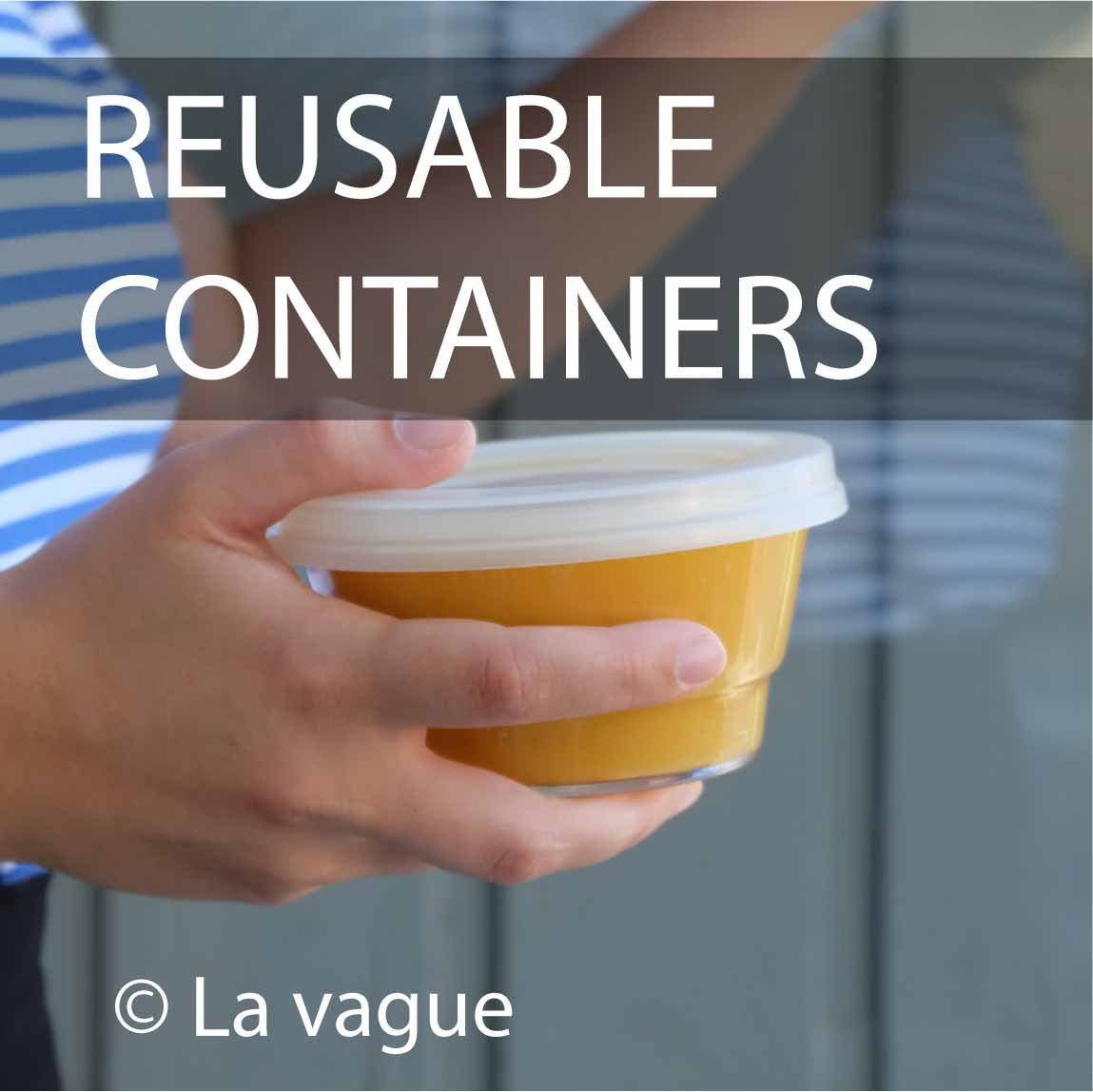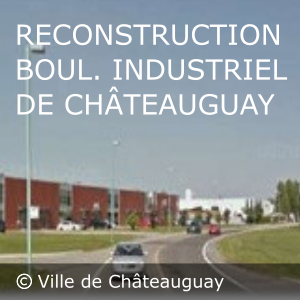LIFE CYCLE ASSESSMENT - REUSABLE CONTAINERS
The ban on the sale of single-use plastic items by restaurants and food establishments in Montreal is has a significant effect on the activities of businesses in this sector. As a part of its take-out, reusable and returnable container program for Quebec restaurants and cafés, La vague commissioned CT Consultant to conduct a comparative LCA of three types of containers (meal boxes, meat trays and cold drink cups). This study was used to determine the best reusable container options from an environmental perspective, to compare them with different single-use options, as well as to provide recommendations to users and organisations implementing reusable container programs. The project summary and final reports are available on La vague’s website.
LIFE CYCLE ASSESSMENT – POST AND BEAM HOUSE
CT Consultant was appointed to conduct a detailed Life Cycle Assessment (LCA) of a wooden post and beam house built in the Lower St. Lawrence region. Including its structure, the house is almost entirely built out of wood: floors, window frames, counters, inside walls, internal wall cladding and exterior siding. Besides the LCA, the environmental impacts of the post and beam house was compared to those of a light-frame wooden house to measure its environmental performance. The assessment will also provide a basis for an eco-design process aiming to further improve the performance of the post and beam house.
GHG inventory OF THE SAINT-JEAN-SUR-RICHELIEU COLLEGE
In the autumn of 2019, we were offered the opportunity to conduct the GHG inventory of the Saint-Jean-Sur-Richelieu College. The chosen analytical framework of the study included scopes 1, 2 and 3 as stated by the GHG Protocol in order to include all the direct and indirect impacts of the college’s activities. In addition, the college was provided with an annual GHG emissions calculator so that they can track their emissions, and thus make an informed choice about emission-reducing measures. The project ended with a webinar presenting the main results of the study, the carbon footprint of the average Quebecer, and possible individual and collective solutions for reducing one’s impact. Click here to access the webinar and PDF presentation.
ENVIRONMENTAL PRODUCT DECLARATION – STEEL COMPONENTS
In order to meet the requirements of green building certification programs, a Canadian steel component manufacturer decided to invest in an Environmental Product Declaration (EPD). In doing so, the company demonstrates transparency concerning the environmental impacts of its components and acts as a leader in the industry. CT Consultant is proud to have been appointed to carry out this strategic project for the company.
LIFE CYCLE ASSESSMENT – HEAD OFFICE OF A SOCIAL INSTITUTION
As part of an institutional building construction project aiming to obtain the LEED v4 and Zero Carbon Building certifications, we carried out the comparative LCA of the designed building with respect to a reference building. The main characteristics of the building are its engineered wood structure and outstanding energy efficiency. In addition, we took part in the Integrated Design Process (ICP) to incorporate impact reduction measures right from the preliminary design stage.
CHOICE OF FOOD PACKAGING BASED ON THEIR ENVIRONMENTAL IMPACTS
In the context of three projects involving various clients and contexts, our firm was mandated to identify which food packaging caused the least impacts on the environment. One of the mandates led to the development of a decision support tool to guide the food retail buyer in his process of purchasing low impact packaging. Thanks to our study, we are confident that our clients will make better environmental choices and will be able to clearly inform their customers about these choices.
LIFE CYCLE ASSESSMENT – HEMP INSULATION
Bio-based building materials are generally regarded as low impact materials. The Nature Fibres company located in Asbestos, Quebec wanted to unambiguously quantify the environmental impacts of its lead product, Nature Chanvre, an insulating mat made of hemp fiber. Preliminary results show that this insulator generates lower GHG emissions than conventional insulation. We hope that these promising results pave the way to an even greater environmental impact reduction in building materials.
EVOLUTION OF BUSINESS MODELS TOWARDS FUNCTIONAL AND COOPERATION ECONOMY
Initiated by the Kamouraska CFDC, this support project for three local businesses aimed to discuss opportunities to change their business model, or, on a broader level their economic model, so as to integrate elements of the functional and cooperation economy. CT Consultant's role was to take part in the discussion and guide companies in the conception of their new business model. We also performed a simplified environmental life cycle assessment to estimate the theoretical environmental benefits that could be achieved if these companies adopted a model based on functional and cooperation economy.
To find out more, you may visit the two following links :
- Report about the project in the Unpointcinq magazine (French only)
- Website dedicated to the fooperation economy
Building Life Cycle Assessment (LEED v4)
In the spring of 2017, the architecture and design firm AEdifica received the mandate to design the Val-Martin housing project and to conduct the accompanying LEED (v4) of the community centre. To obtain LEED Gold certification, AEdifica decided to complete to credit “Building Life Cycle Impact Reduction – Option 4 Whole-Building Life Cycle Assessment” by hiring CT Consultant. The project was a success as the impact reduction targets were attained within the allocated time and budget. We are currently awaiting feedback from the Cagbc.
Click here to access the powerpoint presentation that summarises the project.
REVIEW AND WRITING SUPPORT – REPORT ON THE LIFE CYCLE ASSESSMENT COMPARING A ROLLER COMPACTED CONCRETE ROAD SURFACE AND AN ASPHALT CONCRETE ROAD SURFACE
In the winter of 2016, the Cement Association of Canada commissioned a study to review and assist them with writing a technical report on the comparison of the life cycle environmental impacts of a roller compacted concrete road surface with an asphalt concrete road surface in the context of the reconstruction of a section of Boulevard Industriel in Châteauguay, Quebec. The report has been submitted to the City of Châteauguay and should serve as a key document in its application for funding from the Federation of Canadian Municipalities’ Green Municipal Fund.
Review and Analysis – Building Life Cycle Assessment Report
The Centre for Sustainable Development (Maison du développement durable), is the first office building certified LEED® Platinum (v1.0) in Quebec and celebrated its 5th anniversary of building occupation in the fall of 2016. In order to evaluate the environmental benefits of the Centre for Sustainable Development, life cycle assessment (LCA) and the software Athena Impact Estimator for Buildings were used. CT Consultant was commissioned to review the LCA results, to conduct a detailed analysis and to express the results such that the information would be understandable to all. We invite you to read the report written by Équiterre by following the link below.
Click here to access an LCA report of the Centre for Sustainable Development.
TESTIMONIALS
“In the context of an LCA study that I commissioned to compare two road surface options, I was very appreciative of Charles’s efficiency, rigor and professionalism. He is also very good at explaining complex concepts in LCA, which is very useful for someone not in this field. I strongly recommend his services.”
“ Charles was responsible for validating the results of our LCA of the Centre for Sustainable Development and to bring out the essential elements. With his advanced skills in building LCA and is ease with the collaboration with our team we had the peace of mind when it came time to publishing the results.”












